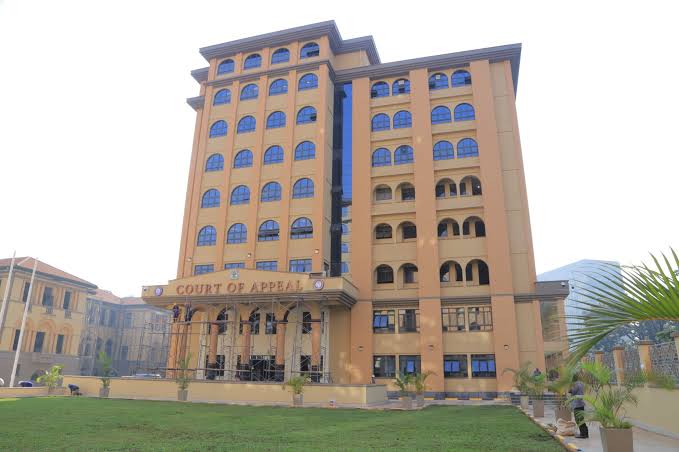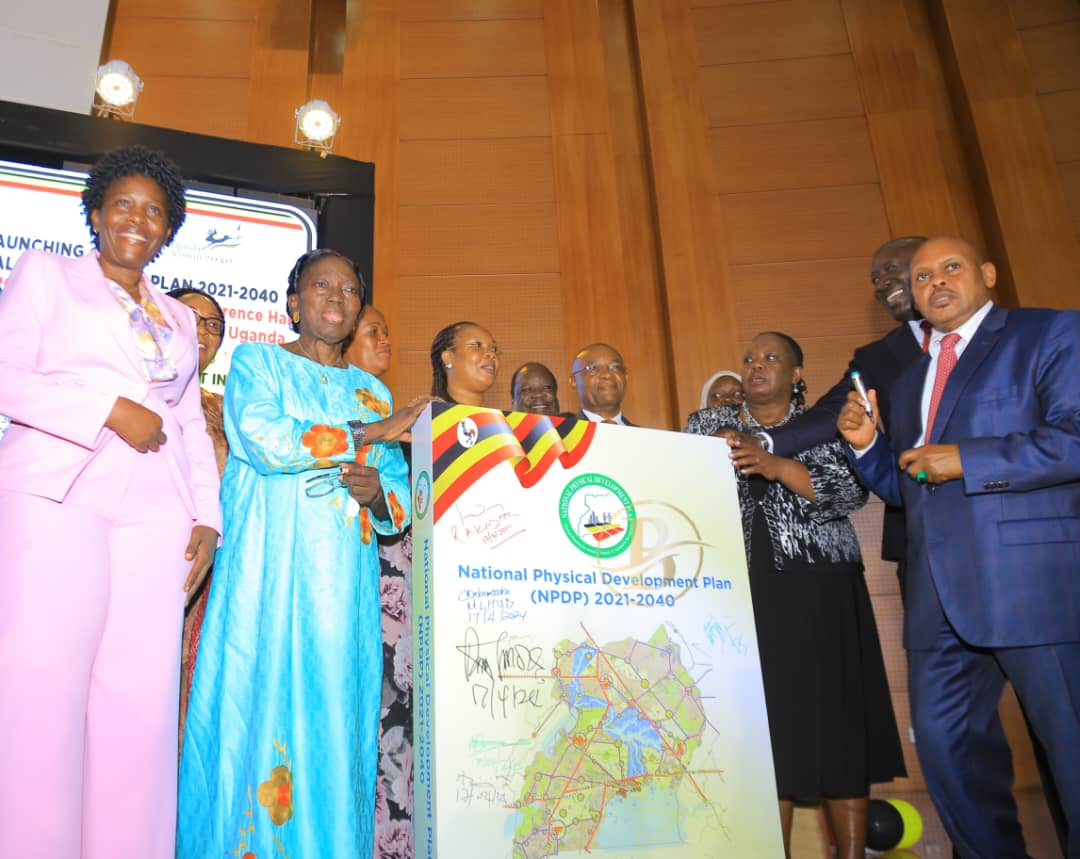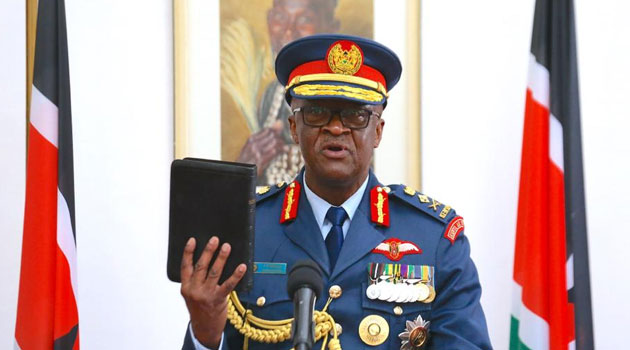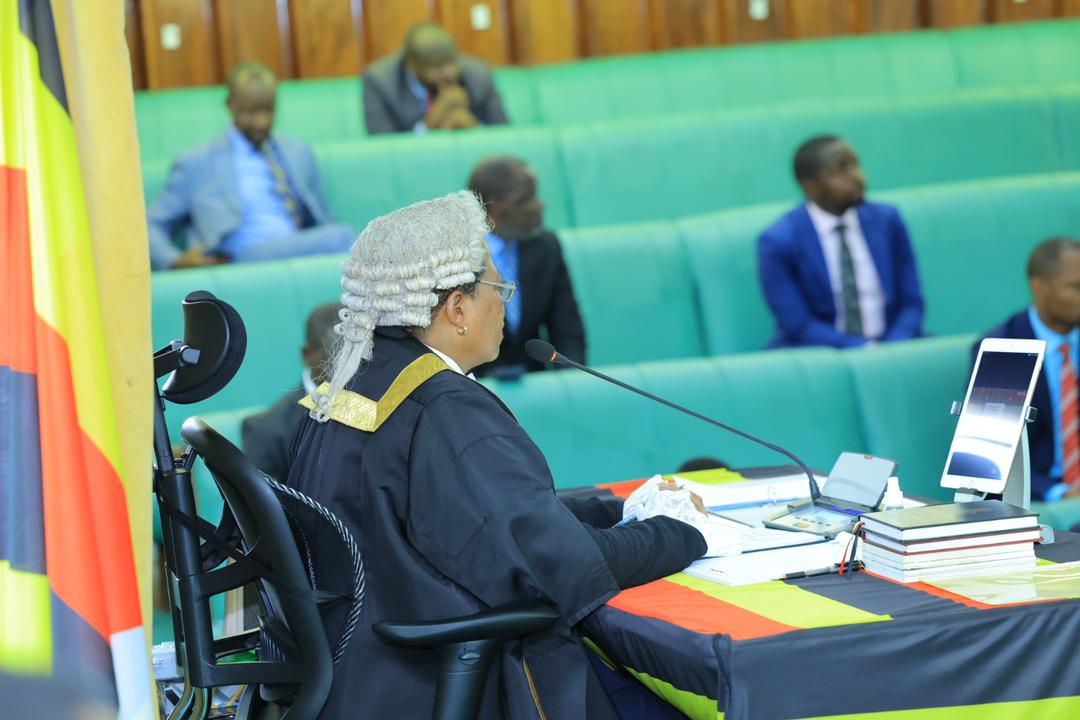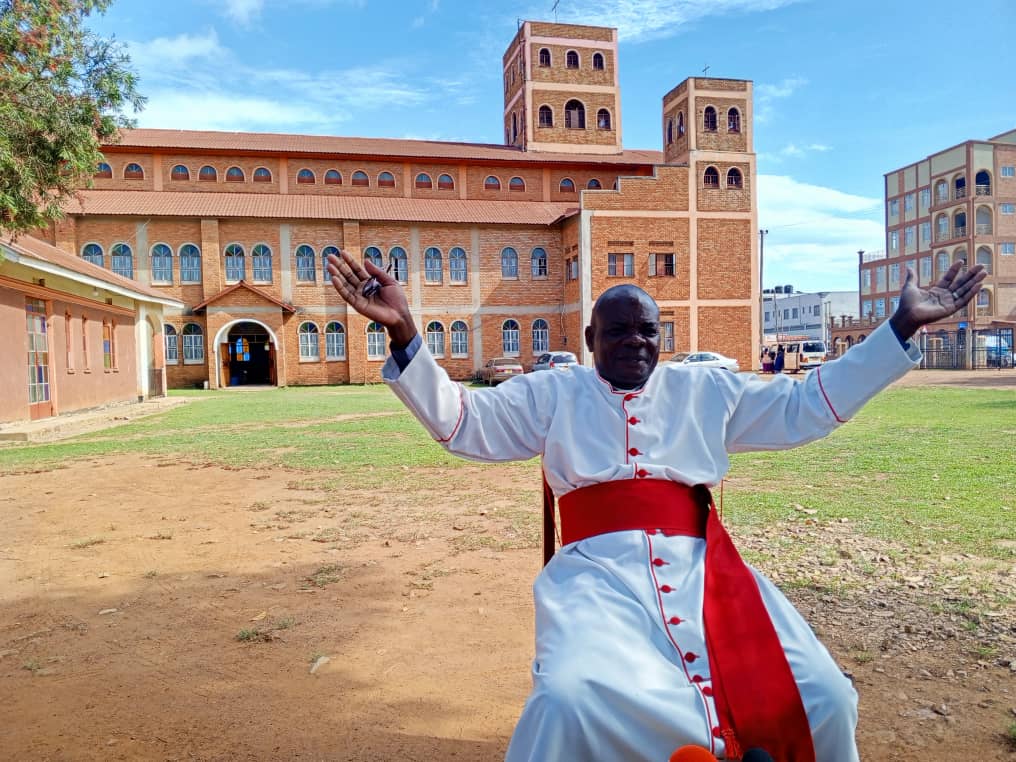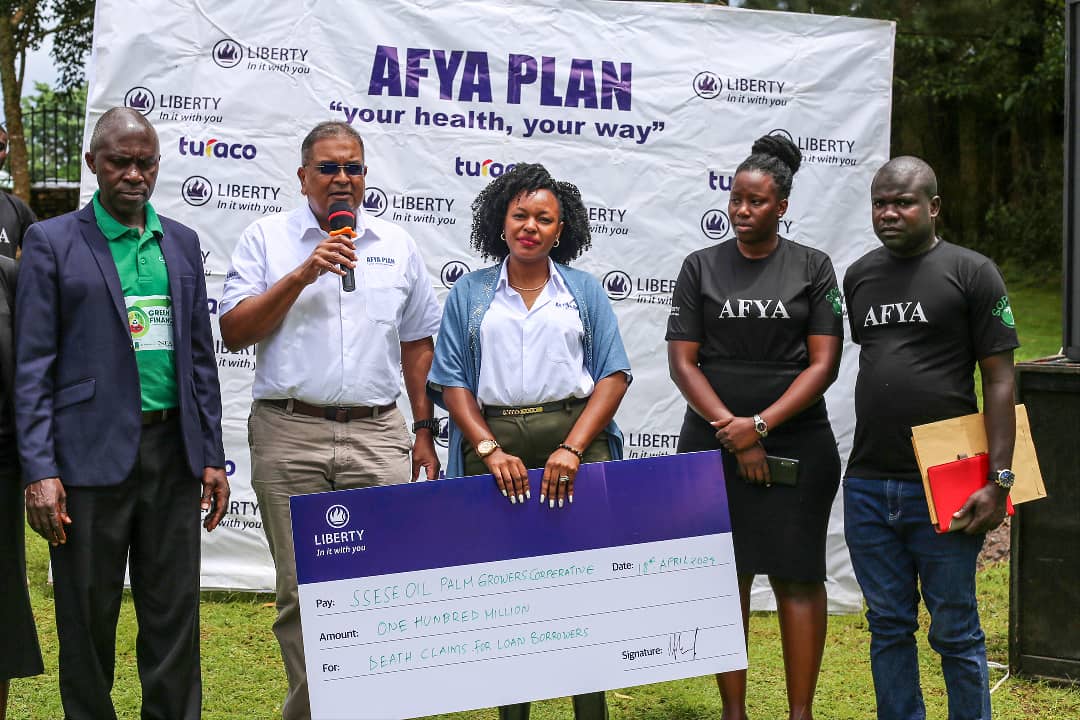TRICKED BY MUSEVENI: Tito Okello Lutwa did not know he had been overthrown
In 1985, peace talks took place between the Uganda Military Council headed by Gen Tito Okello Lutwa and the rebels of the National Resistance Army (NRA) headed by Yoweri Museveni in Nairobi, Kenya.
The talks chaired by Kenya’s Daniel Toroitich Arap Moi happened on December 17, 1985 a Nairobi’s Kenyatta Centre, just a few weeks before Museveni and the NRA would turn against the peace deal and overthrow Tito Okello without his knowledge.
Keep Reading
On the fateful day of the overthrow, Tito Okello turned up to his office usually, he was not aware or even had the slightest idea he had been overthrown. Unfortunately for him, all the people around him, including his ministers, knew he had been overthrown or at least it would be a matter of time before he finds out himself.
A week before the overthrow, Okello had had a long argument with ministers during a cabinet meeting over a matter, the meeting failed to resolve anything and he ordered for a day’s adjournment.
According to former cabinet secretary in Okello’s regime, Edward Ochwo, following the adjournment of the cabinet meeting, Jaberi Bidandi Ssali leaned to whisper to him and said: “Well there will not be another meeting.”
On further inquiry, Bidandi told Ochwo that Museveni’s men were around the corner.
The following morning, Okello came to the international conference Centre expecting to continue with the meeting, alas, there was just a handful of ministers, with several westerner-ministers absent. Fully interested in continuing with duty, Okello directed his assistants to call up all ministers and summon them for the meeting immediately.
One by one of the ministers called would either mumble an excuse of simply refuse to show up. And indeed, there was no meeting. Okello would later meet with Bazilio Okello (the CDF and with whom they captured power from Obote), Chief of Staff Zed Muzuru and other officers. The meeting is said to have lasted about one hour before the group, with Okello changing into full military attire marched out quickly.
They then jumped into a one of the jeeps, leaving the convoy behind and drove off at breakneck speed, exiting Kampala. Museveni had already arrived Kampala with his men and a take over message had been broadcast on Radio Uganda.

Guns sounded, gun powder smelt, and streets were cold and deserted.
Kudoy Anthony, a retired teacher in Jinja said with the happenings in Kampala, soldiers loyal to Okello regime would be seen on streets of Jinja looting shops, and drinking all they could find from open bars.
Meanwhile in Kampala, people were running around the streets, jubilating while bodies of soldiers in combat lay in the same streets, with blood stained on them.
With Museveni within the city, an advance group with the likes of Kahinda Otafire 'ambushed' the cabinet secretariat at International Conference Centre and demanded that a swearing-in ceremony be organised ‘very quickly’.
What could have happened to the Peace deal between Museveni and Okello
After marching into Kampala, Museveni claimed that his involvement in the peace-talks was ‘painful’ because he was seeing the criminals across the table.
Museveni instead said he had been tricked and pressured by other nations who had more interests in trading with Uganda instead of securing the future of the country. He also insisted they could not trust the Okello’s because weeks after the signing of the peace deal, over “500’ people were kidnapped and killed.
“The people were losing trust in us, they thought we had joined the bad government,” Museveni said.
Indeed, Museveni’s deal with Okello was only to divert his attention as he sneaked his way to State House a month later.
Who is Okello Lutwa
Born in Nam Okora, Kitgum district in 1914, the year in which the First World War began, Tito Okello was destined to be a soldier right from the word go.
In 1940, aged 26 years, he joined the Kings African Rifles (KAR), the regional colonial army at the time. This was around the same time that Idi Amin too joined the force. As the case was, he was moved to Kenya and battled the Mau Mau uprising-a Kenyan movement that was fighting for independence.
Tito Okello later joined the Uganda Army as the country got independence. He soon rose to the rank of Lt of the Uganda Army in 1962 and by 1968, he had risen to the rank of Colonel. At the time, he was one of the highest ranked soldiers in the country.
When Obote was overthrown by Idi Amin, Tito Okello narrowly survived being captured by Amin`s henchmen and killed. He managed to sneak out of the country through Masaka-Mutukula and into Tanzania.
In Tanzania, he was among the top commanders who organized the Ugandan exiles into a force that finally overthrew Idi Amin in 1979.
After the war, he became part of the Military Commission, the supreme body that was composed of former exiles that led the country soon after Amin`s overthrow. He was named Army Commander, a position he held for some time.
Through the early 80s, he was part of the UNLA forces that fought various insurgences including the National Resistance Army (NRA) in Luwero Triangle. He was promoted to Lt-General in 1984, partly as a bid by then President Military Obote to stop a division within his army-between the Langi and Acholi.
Serious divisions broke out within their ranks because of the heavy casualties that the UNLA soldiers were suffering at the hands of the NRA. The Acholi accused their Langi counterparts of doing nothing serious to fight the NRA. On top of that the earlier appointment of Brigadier Smith Opon Acak, a junior officer to the position of Chief of Staff, replacing late Major General David Oyite Ojok did not go down well with the Acholi officers.
Subsequently in early 1985, they mobilized their forces and camped in Gulu. In early July, they started their march to Kampala, briefly fighting off Langi soldiers at Karuma, before capturing power on the morning of July 27, 1985. Immediately, they named General Tito Okello as President of the Military Council, but his was not a very easy Presidency.
There was a lot of chaos across most of the country. His army was battling several rebel groups and the economy was completely dead. Lutwa tried to forge reconciliation by inviting the warring factions back home. Some of them like Colonel Isaac Nkwanga’s FEDEMU, Andrew Kayiira`s Uganda Freedom Movement and Moses Ali’s FUNA agreed to join the new dispensation, however the largest guerrilla group, the NRA refused to come on board.
In November, peace talks between the Military Junta and the NRA/M started in Nairobi. An agreement was soon signed but it became apparent that it was not going to work since fighting continued, as abuse of human rights skyrocketed. By late December, the NRA had cut off most of the South and West of the country, advancing as far as Mpigi.
On January 26, Tito Okello was overthrown. He went to exile in different countries including Kenya, Tanzania and several in Europe before his death in 1996, aged 82 years. Tito Okello was married to Esther Okello. Years later, one of Tito Okello’s sons Okello Oryem served as Minister in the NRM government. He is buried in Kitgum.
https://nilepost.co.ug/2019/01/26/rwigyema-after-liberating-uganda-started-liberating-rwanda-but-never-reached-kigali/


